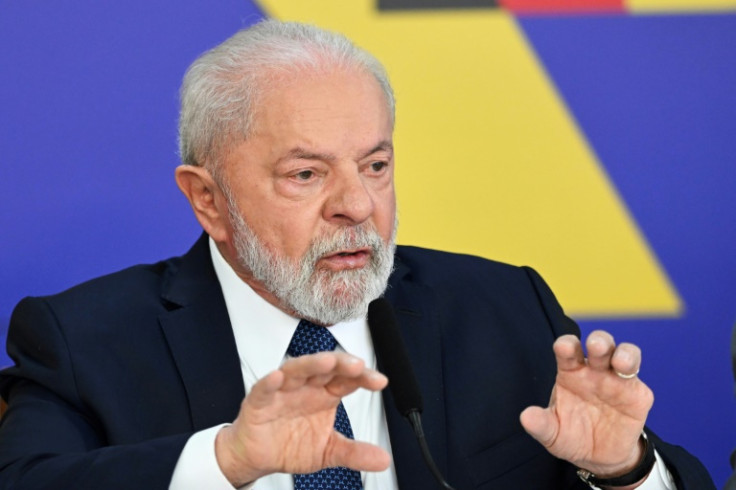
Brazilian President Luiz Inácio Lula da Silva, who has advocated for a global order based on "dialogue, multilateralism and multipolarity," is deepening ties with India, as both countries share a common desire to level the international playing field.
Lula and Indian Prime Minister Narendra Modi have expressed mutual support in their countries having greater global influence, and have used their position in world forums like the G20 to foster better inclusion of developing nations.
"They are both developing economies with similar challenges, so there will always be something to learn from each other," Hari Seshasayee, Advisor, Senior Dispatch of Panama's Ministry of Foreign Affairs and Asia-Latin America Expert, United Nations Development Program, told International Business Times. "Brazil and India have also followed a largely independent foreign policy, and will continue to promote multilateralism in order to achieve a more multipolar world, where Delhi and Brasilia will hopefully wield even more influence."
Lula and Modi had met on the sidelines of the G20 summit last weekend, and reaffirmed their commitment to bolstering the Brazil-India Strategic Partnership.
"Brazil and India are both vast democratic countries with large populations. The similarities between the two countries and the intensity of the relationship between them contribute to coordination in interregional mechanisms and plurilateral forums such as the G20," a statement said. "Protecting and advancing the interests of the Global South" was also discussed between the two leaders.
As the world order goes through a kind of reshuffling, Brasília is expanding its strategic partnership with India as part of their shared vision for a multipolar order.
"India and Brazil are strong pillars of their own regions, i.e. India in South Asia and the larger Asian continent, and Brazil in Latin America. They will continue to wield influence in these regions and occasionally look to expand their spheres of influence through multilateral bodies like the BRICS and G20," Seshasayee said.
"[Their] strategic relationship is built over the past three decades and includes a diverse mix of cooperation, from energy and food security to multilateral groupings," he added.
Brazil-India ties are also built on a strong trade relationship that has expanded in recent years.
"Brazil is a significant trade partner of India's overall trade trajectory" and "one of the most resilient economies in the world economic system," S.P. Sharma, chief economist at PHD Chamber of Commerce and Industry, told IBT.
"India's trade trajectory with Brazil has grown from US $3 Billion in 2017-18 to US $10 Billion 2022-23 showing a growth of 230% in the past 5 years," he said, adding that "trade is expected to expand many folds in the coming times."
Brazil -- part of the G20 troika -- took over the forum's presidency from India for the 2024 summit. As Modi passed on the G20 presidential gavel to Brazil following last weekend's summit, he expressed "unwavering faith" in the nation to "further global unity."
The two leaders seem well aware that this was the moment for the global south, having used their country's clout to ensure that developing nations are better represented in the global front.
"Both India and Brazil are leading economies of the Global South and share common perspectives regarding reformed multilateralism, inclusive and sustainable development," Ruchita Beri, Consultant at the Manohar Parrikar Institute for Defence Studies and Analyses, New Delhi, told IBT.
"The mutual understanding between Indian Prime Minister Narendra Modi and Brazilian President Luiz Inacio Lula de Silva helped in pushing forward their common agenda" on the sidelines of the G20 summit," Beri added.
Before the conclusion of the G20 summit, the two countries also made a renewed pitch for developing countries to have a voice at world forums that is proportional to their geographical size and their share in global economics. Modi and Lula showed mutual support for each other's permanent membership in the expanded United Nations Security Council and agreed to hold regular bilateral coordination meetings for the same.
© 2025 Latin Times. All rights reserved. Do not reproduce without permission.




